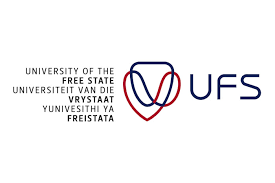University of the Free State: ‘A Broken Sarafina Production’ premiers at the University of the Free State
The Arts and Culture Office at the University of the Free State (UFS) hosted an on-stage production inspired by Dr Mbongeni Ngema’s work Sarafina, which is called ‘The Burning Ones: A Broken Sarafina Production’. The production ran from 27 to 28 July 2022 in the Albert Wessels Auditorium on the UFS Bloemfontein Campus. The writer and creator of Sarafina, Dr Mbongeni Ngema, attended the production. “It humbles me that the young people of today have different interpretations of Sarafina; it means what I did, the call that came to my soul to create a movement of the students, is now being fulfilled,” expressed Dr Ngema.
The breakdown of the production
The production critically analysed the struggles of the youth in 1976, along with the struggles of young people – specifically at institutions of higher learning today. “There’s so much happening within our institution and the higher education space, which makes for thought-provoking content and insightful discourse,” stated Sibahle Mabaso, a student at the University of the Free State and director of the show.
The production followed a devised theatre format, which is essentially a production that does not adhere to a script. “There was no script, no paper, it was an explorative effort from the beginning until the end,” Mabaso stated. However, the foundation of the production was the experiences, thoughts, and perspectives of the cast. As such, the production explored a number of issues, such as protest culture and appearance vs reality, specifically in the higher education space, among other things. “The production addressed so many things; as such, the audience could attach to a plethora of themes presented in the story,” Mabaso expressed.
The importance of such productions
According to Lucy Sehloho, Officer in the Arts and Culture Office, the production was important for several reasons, especially in a university space. Firstly, the initiative was stimulating enough to evoke real emotions; however, through this production, a safe space was created to have open and honest conversations about the realities of students in the higher education space. Furthermore, the significance of such productions is that staff and students can work at finding solutions to the problems they face through a collaborative and cooperative effort. “I didn’t want anyone to walk out of the space infuriated and more anxious; rather, we wanted people to walk out of the venue with the urge to assist in finding solutions,” Sehloho highlighted.
The opening and closing nights of the show were attended in large numbers. In addition, Sehloho and Mabaso assert that the feedback from both nights was positive, which is proof that the production served as an outlet and a space where people could communicate openly and truthfully without fighting.

